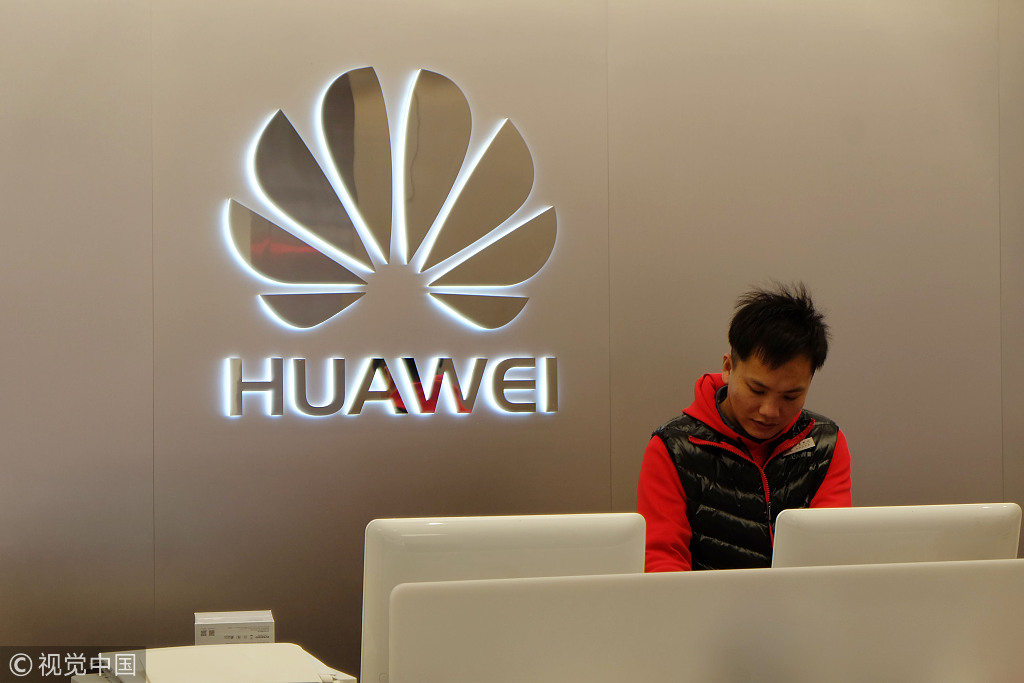Huawei should focus on key supporters, observers say
By Cecily Liu in London | China Daily | Updated: 2019-01-24 10:04

As technology giant Huawei faces the apparent rise of protectionism in Western countries, leading European industry insiders and academics suggest the Chinese company should focus on nurturing its solid ties with key existing overseas partners in order to wade through difficult times.
The pressure on Huawei that originated in the United States has in recent months escalated and spread to Europe, with the University of Oxford suspending Huawei funding and the German government reportedly considering barring Huawei from its 5G mobile networks.
Amid this, many of Huawei's existing partners have firmly supported the company, reassuring the public of their trust and continued collaboration.
Shortly after Oxford said it would stop accepting new Huawei funding, a handful of British universities reaffirmed that they would not stop working with Huawei without solid evidence suggesting otherwise, including Surrey, Manchester, York, Cardiff, Edinburgh, Southampton and Imperial universities.
In addition, leading British telecom service provider BT will continue working with Huawei on 5G radio access technology in 16 UK cities next year, Mike Witts, the company's spokesman, told China Daily in an email.
And German industry association BDI has said that no vendors should be excluded from Germany's 5G mobile networks if there is no evidence against them.
Peter Williamson, an honorary professor of international management at Cambridge Judge Business School, said Huawei's strong relationships with partners across Europe, built over the past decade, are paying off.
"Huawei's large customers in Europe tell me that they greatly value the quality of technology and customer service provided by Huawei and they will therefore strongly resist any political pressure to exclude Huawei," Williamson said.
Such relationships with Western businesses, customers and local governments will become more important for Huawei and other Chinese companies if political sentiment worsens, he said.
Huawei, a telecommunications company founded in 1987 in Shenzhen, has grown at an incredible speed, with 2018 revenue expected to exceed $100 billion. In the smartphone market, it has become the world's second-largest player by market share, ahead of Apple. The company is also investing heavily in 5G technology.
However, its international growth has encountered challenges, first in the United States in 2012 when a congressional probe raised national security concerns. Tension escalated last year when Canada arrested Huawei chief financial officer Meng Wanzhou, who is also a daughter of the company's founder, Ren Zhengfei.
More recently, some British politicians have voiced concerns over Huawei equipment, and Germany's business newspaper Handelsblatt reported that the German government is considering excluding Huawei.
Some experts say these developments are signs of protectionism.
"The difficulties (Huawei) faces are purely political - a feeling in some countries, especially the US, that China should not be able to lead new technologies such as 5G mobile. I am afraid that this is not a one-off incident, but rather reflects that some powerful people in Western countries fear China's rise," said Williamson.
Jeffrey D. Sachs, a professor of sustainable development at Columbia University, shares this view. In a recent article for Project Syndicate, he wrote: "The US is targeting Huawei especially, because of the company's success in marketing cutting-edge 5G technologies globally."
Sachs stressed that the US government has not provided any evidence for its claim regarding Huawei security concerns, and said the way the US has dealt with Huawei amounts to "an economic war on China".
"Huawei is one of China's most important technology companies, and therefore a prime target in the Trump administration's effort to slow or stop China's advance into several high-technology sectors," Sachs said.
Huawei has repeatedly said it has never breached any laws in countries it operates in, and has never had a cybersecurity-related incident. In the UK it runs a cybersecurity evaluation center in Banbury, Oxfordshire, to detect potential problems. The center's work is overseen by the UK's National Cyber Security Centre, and so far it has not discovered any problems.
The University of Surrey, which has received continuous Huawei investments since 2014 into its 5G Innovation Centre, said Huawei is a "key partner" with whom it is collaborating to develop 5G capabilities.
"We will continue to work with all our research partners, including Huawei, unless there are clear and compelling reasons not to."
Mark Adams, chairman of British tech consultancy Honey Partnership, said Huawei equipment should not be a security concern in the UK.
"Surely we should do business with large and professional businesses, such as Huawei, which has a good track record and reputation for delivering high-quality network equipment, and which are actually more likely to have greater security expertise," Adams said.
























